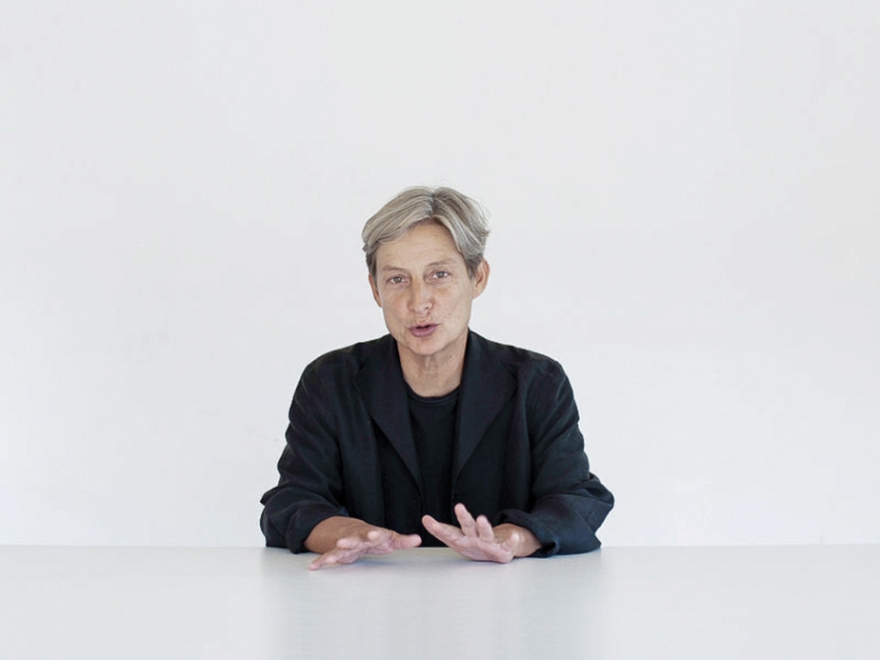
Judith Butler philosopher, academic, political activist and one of the leading theorists in gender studies and post-structuralism. Butler currently is a professor of Comparative Literature and Rhetoric at the University of California, while also serving on the board of the Centre for Constitutional Rights and the advisory board of Jewish Voice for Peace. She has also served as the chair of the International Gay and Lesbian Human Rights Commission board. Butler has remained a political activist throughout her career, concentrating primarily on feminism, queer and gender-related issues. She has also spoken out on many themes such as affirmative action and war atrocities, especially relating to Iraq, Afghanistan and Palestine.
Butler’s most well-known book “Gender Trouble” (1990), explores if gender is assigned to us at birth or if we simply perform one based on the values we have learned. She states that gender is performative, so rather than it being part of our nature, we instead act it out.
She believes that our definitions of masculinity and femininity are constructed rather than inherited from within us. A controversial statement that Butler makes is that the “biological differences between men and women are socially constructed,” The perceived obviousness of one’s sex has facilitated the assignment of values, judgments, and beliefs for how men/women ought to behave.
Butler continues with her studies of gender with the squeal “Bodies That Matter” which was published in 1993. The book further elaborates on “Gender Trouble” and seeks to clear up any misunderstandings or so-called “misreadings” of her concept of gender performativity. In Judith Butler’s perspective, performative gender roles produce a series of effects that correctly correspond to represent either gender, whether man or woman. It is up to us to choose how we represent ourselves, making gender a social construct.
“Gender is something you do, rather than who you are.”
Judith Butler believes that the more cultural discourse, acceptance, and proximity we have with gay, lesbian and transsexual people, the more that lifestyle becomes understandable or ‘thinkable’ to us. Butler acknowledges that societal discourse and cultural movements towards the support of transgender, gay and lesbian rights, makes it possible for people to accept their sexuality and lead a gay or lesbian lifestyle, but she claims this does not determine or produce homosexuality.
References:
En.wikipedia.org. (2019). Judith Butler. [online] Available at: https://en.wikipedia.org/wiki/Judith_Butler#cite_note-50 [Accessed 28 Feb. 2019].
Vcresearch.berkeley.edu. (2019). Judith Butler | Research UC Berkeley. [online] Available at: https://vcresearch.berkeley.edu/faculty/judith-butler [Accessed 28 Feb. 2019].
Famousphilosophers.org. (2019). Judith Butler | Biography, Philosophy and Facts. [online] Available at: https://www.famousphilosophers.org/judith-butler/ [Accessed 28 Feb. 2019].
YouTube. (2019). Judith Butler: Your Behavior Creates Your Gender. [online] Available at: https://youtu.be/Bo7o2LYATDc [Accessed 28 Feb. 2019].
YouTube. (2019). How Discourse Creates Homosexuality. [online] Available at: https://youtu.be/3VqvCndtYCg [Accessed 28 Feb. 2019].
Entry by Dominykas Navickas and Jed Salmon